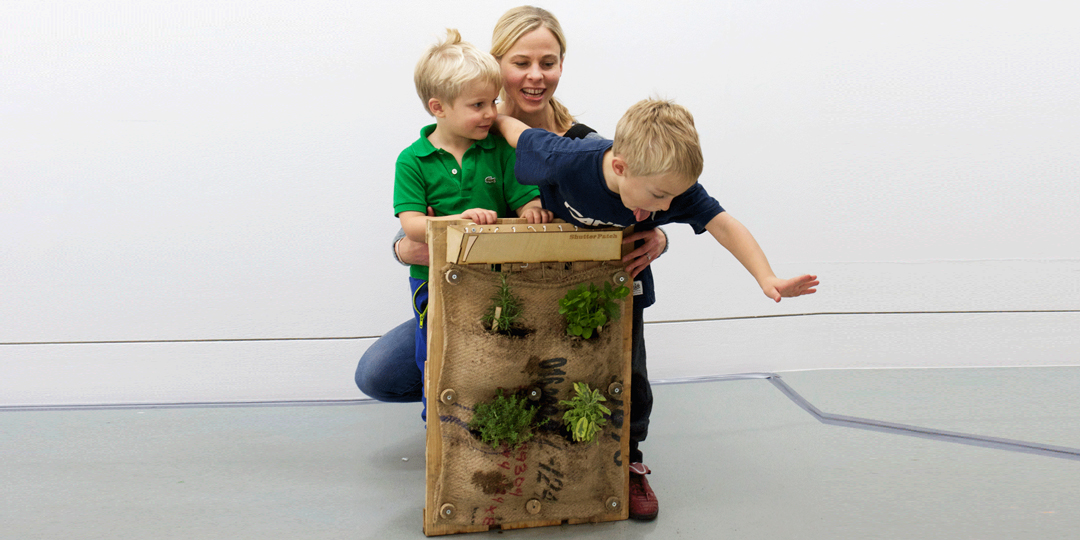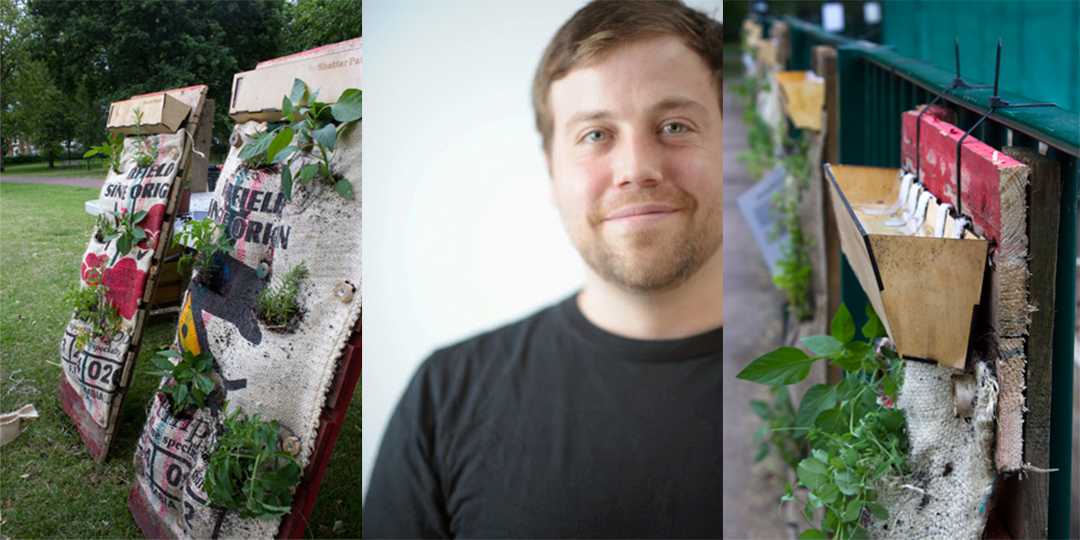Chris Verbick wants everyone to have their own bag of land and he’ll be spending March as Maker Library Resident making tiny farms. We asked him a few questions about his plans.
Can you tell us a bit about your background as a maker, and your practice and areas of interest?
My first experience as a maker was designing and building guitar effects pedals and audio mixers for my band—20 years ago! Around the same time, I was inspired to study engineering through early exposure to robotics and CNC technologies.
I’m an industrial designer with a master’s degree in engineering. My practice centers around humanizing consumer products by embracing social impact and environmental sustainability.
In other words, I’m driven to create objects that make people smile, which improve our quality of life, and don’t wreck the environment in the process. I have a background in graphic design, branding, illustration, and art curation so many of my projects are both visual and physical. For the last 8 years I’ve been building an expertise in 3D printing and design for digital manufacture.
You will be based at Machines Room for a month, can you tell us a bit about what you’ll be working on?
During the month-long residency, I’m going to be re-designing a vertical farming system that is made up almost entirely from reclaimed material. I’ll be improving the product experience and creating an open source kit so that users can make their own gardens, improve the system, and help to spread the word about the project.
How will having access to the machines, expertise and community at Machines Room influence your work and practice?
The network effect is strong with this maker space! It’s great to be welcomed by the community. My work will benefit greatly from the expertise of the members here. Having access to the machines will allow me to rapidly iterate and test so that I can optimize the product and the experience of growing edible plants. Culminating the residency with a hands-on workshop is ideal—I can’t wait to work with a group of people to create some tiny farms!
What is next for your project? Are you planning to continue this stream of work or start a new project?
My plan is to continue to develop the system further. In the course of my residency I’ll be developing tools and guides that can launch alongside the kit that will be developed. Ultimately, my goal is to develop more projects in the same vein; focused on social impact, with minimal impact to the environment.

